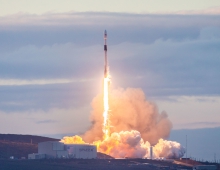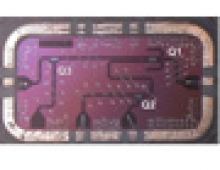
Researchers to Use Quantum Sensing Technology to Make GPS More Secure
The Canadian government is funding researchers at the University of Toronto to work on cutting-edge approaches in quantum sensing to introduce a more secure, accurate approach to mapping and navigation.
GPS – or Global Positioning System – is vulnerable to hacking. This exposes potentially dangerous security risks in critical systems, from air traffic control to satellite communications.
University of Toronto professor Amr Helmy of the department of electrical and computer engineering in the Faculty of Applied Science & Engineering recently received funding from the Government of Canada, as part of its Innovation for Defence Excellence and Security (IDEaS) program, to upgrade today’s fiber-optic gyroscopes — a device that is used to detect the deviation of an object from its desired orientation — into scalable, portable, lightweight quantum-enhanced navigation instruments that can be deployed in aircrafts, ships, land vehicles and on personnel.
"Quantum sensing technology introduces groundbreaking approaches to measuring things," says Helmy. "It’s an exciting time because it’s a challenging time. But there are emerging needs in both instrumentation technologies and in security, where quantum sensing is the answer."
Quantum sensors rely on the "squeezing effect," whereby photons have the uncertainty inherent to their attributes minimized, to precisely measure the position of a location.
In addition to improving mapping accuracy, he points out that there are also situations in which a GPS wouldn’t be functional, "such as under water or at the North or South Poles. Quantum technology helps with that as well."
Quantum sensing also provides a solution to security breaches. Unlike GPS platforms, quantum-enhanced navigation instruments do not rely on satellites to work,which makes them less vulnerable to hacking or spoofing.
U of T Engineering is at the forefront of quantum research applications, says Helmy. "Our Faculty is uniquely positioned. We have a formidable set of skills and resources that can both develop the sensing and also deploy the background technology that is needed to make it happen within a year, if not months."
Over the past year I’ve been increasingly discussing how researchers around the world, from the US to China, have been experimenting with quantum sensors and other quantum technologies to develop products that can replace today’s global GPS system.
The UK government has been also focusing on securing military technologies and is running the UK National Quantum Technologies Programme.
Earlier this month, researchers at London’s Imperial College London announced they’ve built the world’s first Quantum compass – a "tamper proof navigation device" that doesn’t rely on GPS.
The device is useful if you want to navigate a large ship or autonomous vehicles over long periods of time, without having to send or receive any other signals to know where you are.
The quantum compass, which is a form of quantum accelerometer, works by measuring how an object’s velocity changes over time. It is based on research conducted on one of the universe’s coldest objects – an aluminium disc that was cooled down last year to just millions of a degree above absolute zero. At that point, all molecular movement stops, allowing scientists more accurately analyse a material's "quantum states." In this hyper-cold state, a powerful laser is used to control and manipulate the material.
Since 2013, the UK government has invested £270m into Quantum technologies.



















